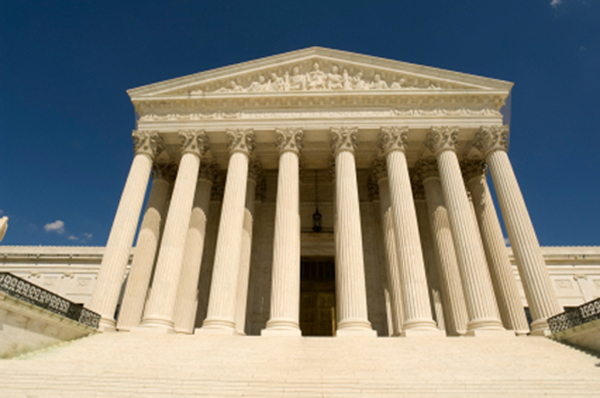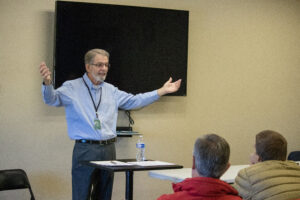
WASHINGTON (BP) — The U.S. Supreme Court struck a blow Monday (June 26) for the freedom of churches to participate in government programs with secular purposes.
Seven of the high court’s nine justices agreed the state of Missouri violated a church’s right to exercise its faith freely by barring it from participating in a government-run, playground-resurfacing program. In its opinion, the court said excluding Trinity Lutheran Church of Columbia “from a public benefit for which it is otherwise qualified, solely because it is a church, is odious” to the U.S. Constitution
Religious freedom advocates applauded the ruling.
Russell Moore, president of the Southern Baptist Ethics & Religious Liberty Commission (ERLC), described the decision as “a triumph for religious freedom and a victory not just for this church, and not just for people of faith, but for all who believe American citizens should be treated equally by their government.”
David Cortman — who argued before the court in late April on behalf of Trinity Lutheran as senior counsel for Alliance Defending Freedom — said the opinion “affirms the commonsense principle that government isn’t being neutral when it treats religious organizations worse than everyone else.”
The ruling in Trinity Lutheran Church v. Comer came amidst a flurry of opinions and orders on the high court’s last day of the term. Among other actions, the justices:
— Granted review of another religious freedom opinion, accepting the appeal of a Colorado court’s decision a baker must decorate a cake for a same-sex wedding despite his conscientious objection. The Colorado Court of Appeals had upheld a 2014 ruling by the state’s Civil Rights Commission that Jack Phillips of Masterpiece Cakeshop in Lakewood must abide by an anti-discrimination law. The Colorado Supreme Court declined to rule on the lower court’s decision, and Phillips appealed to the high court.
— Summarily reversed an Arkansas Supreme Court decision that upheld a state rule barring a female spouse of a mother in a same-sex marriage from having her name included on the birth certificate. New Associate Justice Neil Gorsuch dissented, with Associate Justices Clarence Thomas and Samuel Alito joining him.
— Lifted without dissent, but with some exemptions, injunctions blocking President Trump’s revised, temporary travel ban on entry into the United States of people from six Muslim-majority countries and granted review of lower-court opinions in the case during the next term, which begins in October.
The ruling in the church-state case from Missouri involved the state’s Scrap Tire Grant Program, which provides grants to non-profit organizations — minus church-affiliated ones — for safer, rubberized surfaces for children’s playgrounds. The state rejected the application of the Trinity Lutheran Church Learning Center from participation in the program because of its affiliation with the church.
In the high court’s opinion, Chief Justice John Roberts acknowledged both parties in the case agreed the First Amendment’s ban on government establishment of religion — known as the establishment clause — does not bar the state from including Trinity Lutheran in the program. Yet, Missouri’s rule violates the same amendment’s free exercise clause based on the court’s previous rulings, he said.
“The express discrimination against religious exercise here is not the denial of a grant, but rather the refusal to allow the church — solely because it is a church — to compete with secular organizations for a grant,” Roberts wrote.
“In this case, there is no dispute that Trinity Lutheran is put to the choice between being a church and receiving a government benefit,” he said. “The rule is simple: No churches need apply.”
The ERLC’s Russell Moore, said in a written statement the case “was about fair play: do religious organizations have access to the public square, or will they be penalized for holding religious convictions?”
“I oppose any establishment or funding of religion, but a house of worship taking advantage of a universally accessible program does not constitute an establishment,” he said. “Throughout our nation’s history, churches have been at the forefront of American life serving their communities.
“I’m glad this ruling insists that no American — whether religious or not — should be disadvantaged simply because of what they believe,” Moore said. “The Supreme Court got this right, and the only unfortunate thing about this case is that a principle so foundational to basic American freedoms would even be in question.”
The Southern Baptist, father-and-son law team of Michael and Jonathan Whitehead — co-counsels for Trinity Lutheran who practice in the Kansas City area — also praised the ruling.
“Free exercise does not just protect the right to pray and worship in private,” Mike Whitehead said in a written release. “Free exercise means the right to live out one’s faith in the public square, and to participate fully as citizens, including public benefit programs.”
Jonathan Whitehead called the 7-2 vote from a sharply divided court “very encouraging about the strength of this principle on the current Court.”
In the majority for the court’s judgment in addition to Roberts were Associate Justice Anthony Kennedy, Thomas, Alito and Gorsuch, as well as two typically liberal members, Associate Justices Stephen Breyer and Elena Kagan.
Associate Justice Sonia Sotomayor, joined by Associate Justice Ruth Bader Ginsburg, sharply dissented from the majority.
In its ruling, the court changed the relationship between the institutions of the church and state “by holding, for the first time, that the Constitution requires the government to provide public funds directly to a church,” Sotomayor wrote. “Its decision slights both our precedents and our history, and its reasoning weakens this country’s longstanding commitment to a separation of church and state beneficial to both.”
Strict-separationist and secularist organizations criticized the court’s decision.
“While claiming to stand up for churches, the Court ignores their distinct nature as centers of religious exercise,” said Holly Hollman, general counsel of the Baptist Joint Committee for Religious Liberty, in a written statement. “‘No aid’ provisions reflect the hard-fought battles of Baptists and other religious dissenters that abolished government controls over religion and secured church autonomy.”
Thomas, Gorsuch and Breyer all wrote concurring opinions. Thomas and Gorsuch both said they refused to join the opinion’s third footnote, which said: “This case involves express discrimination based on religious identity with respect to playground resurfacing. We do not address religious uses of funding or other forms of discrimination.”
The ERLC filed a friend-of-the-court brief with the high court in support of Trinity Lutheran, contending the exclusion of churches from neutral government programs does “not fulfill the ‘benevolent neutrality'” long embraced by the justices.















